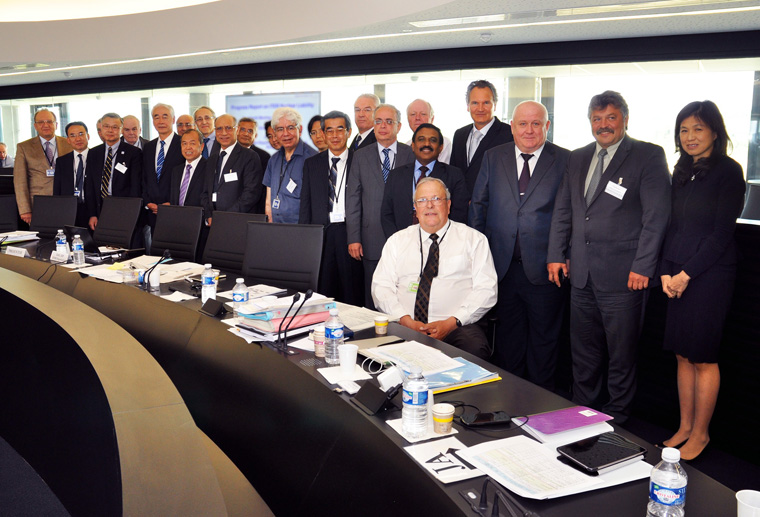
Thermonuclear advancements
back to contentsThe participants assessed progress in construction at the ITER site and in manufacture of the future facility components. Russian nuclear engineers also presented on their results. The meeting participants noted progress in the ITER construction. Since the ITER Council in November 2013 the basemat under the Diagnostics Building has been completed and the steel reinforcement for the Tokamak Building slab is nearly completed as the Cryostat Building. In October 2014 the extra wing of the headquarters building will be usable.
Several main buildings have been erected and key contracts for the construction site infrastructure development have been signed. Construction of the assembly and servicing building walls will start before the end of this year. It is planned to build a 10,000-square-meter warehouse for essential components.
Russian elements
Representatives of all seven parties to the project reported on their progress in making ITER elements in their countries, including: superconducting coils, vacuum chamber, and cryostat. As to the Russian contribution to the project, by date 17 contracts have been signed for supply of devices and components for ITER.
The Russian specialists develop diagnostic equipment, superconducting cables for magnets, which will control plasma in the fusion reactor, and a section divertor (the device that will directly contact the toroidal pinch. It is a total of 25 systems. More to that, shortly Russia hopes to sign 18 more contracts with the ITER International Organization.
More than 30 research centers are engaged in the work in Russia. “By date, a number of high technology productions have been either restored or fully modernized in the country, Anatoly Krasilnikov, Head of the Project Center ITER in Russia, noted. “We complete manufacture of superconductors this year. We will still make the cables next year, and we finish making the wire. The international cooperation goes on, we take part in meetings with foreign colleagues and they come to us.”
To keep to the schedule
At the ITER Council meeting the delegates noted that efforts must be made to stem schedule slippage. The ITER Organization and the Members were directed to take necessary measures. Russia fulfills its obligations under the project without delays.
The meeting also reviewed the issue of the ITER Organization’s using an action plan to optimize the project. Besides, the Council members noted the necessity of closer interaction between the ITER Organization and Domestic Agencies to achieve maximum conformance of the project management system with the goals and objectives that would arise at its next stage.




